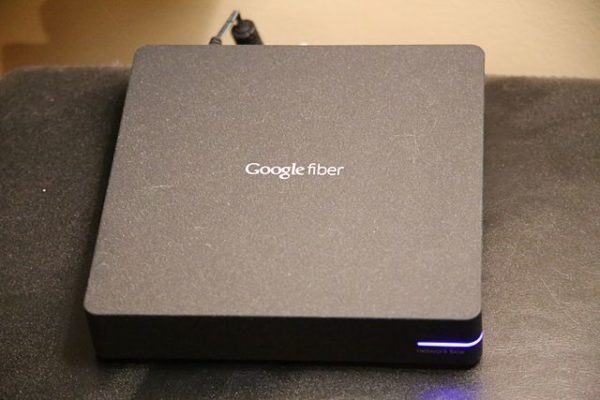Google Fiber expansion reveals depressing fact about U.S. economy

 Yesterday, an article in ZDNet detailed how the emergence of Google Fiber has forced telco incumbents to step up their game, offering faster internet service for the same price.
Yesterday, an article in ZDNet detailed how the emergence of Google Fiber has forced telco incumbents to step up their game, offering faster internet service for the same price.
In Charlotte, Time Warner Cable is rolling out its “Maxx” broadband service. The company promises speeds that are up to six times faster than what is currently offered. Google Fiber isn’t yet available in Charlotte, mind you, but the California tech giant’s plans have sufficiently rattled Time Warner well in advance of its arrival.
This is all good news for residents of Charlotte and for those in Kansas City, where AT&T has promised to match Google Fiber’s prices. Turns out, that company’s fiber optic cables already connect to the outside of many homes in the area. It is, presumably a pattern that will be repeated around the country, and that is good for consumers in places like Atlanta, Nashville, Charlotte, Austin and Provo.
But here’s the depressing part of the feel good Google Fiber story: the idea that competition has created a better outcome for the consumer is actually news in 2015.
Google Fiber, a fiber-to-the-premises service that boasts upload and download speeds in excess of a gigabit per second, was introduced as a beta in 2011 in Palo Alto, California. The service launched in Kansas City later that year and then expanded to Austin, Texas, and Provo, Utah.
Without Google and its $100-billion pile of cash, things would be pretty dire for American consumers, many of whom will without doubt agree that internet service might actually be important enough in this day and age to qualify as a basic human right, as the U.N believes it is.
According to the FCC, more than half of American consumers have no choice when it comes to a broadband provider. If the proposed merger of Comcast and Time Warner is approved, that number would rise to two-thirds.
Comcast executive vice president David L. Cohen, meanwhile, says consumers would actually benefit from the merger, which is currently in front of the FCC and United States Department of Justice.
“This transaction is all about increasing competition and creating more consumer benefit as a result of gaining additional scale,” he told C-SPAN recently.
There is, of course, no reason to believe Cohen on this matter. Comcast consistently ranks as one of America’s most hated companies, ranking approximately as low as diphtheria in multiple consumer polls.
Last year, a recording of a man trying to cancel his Comcast service went viral, spurring a range of copycat frustrated customers.
“Not taking no for an answer, the rep peppered Block with questions,” reported Time. “You don’t want something that works?”; “So you’re not interested in the fastest internet in the country?”; “I’m really ashamed to see you go to something that can’t give you what we can!”; “What is it about this other internet provider???”
Meanwhile, a freedom of information act from earlier this year revealed a proposed case the FTC was looking to wager against a company it thought might be guilty of coercion and anti-competitive practices. The target? Google.
Below: Google Fiber: Explained!
Nick Waddell
Founder of Cantech Letter
Cantech Letter founder and editor Nick Waddell has lived in five Canadian provinces and is proud of his country's often overlooked contributions to the world of science and technology. Waddell takes a regular shift on the Canadian media circuit, making appearances on CTV, CBC and BNN, and contributing to publications such as Canadian Business and Business Insider.
